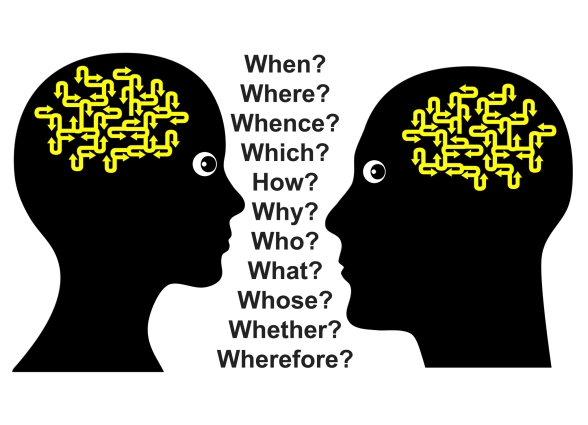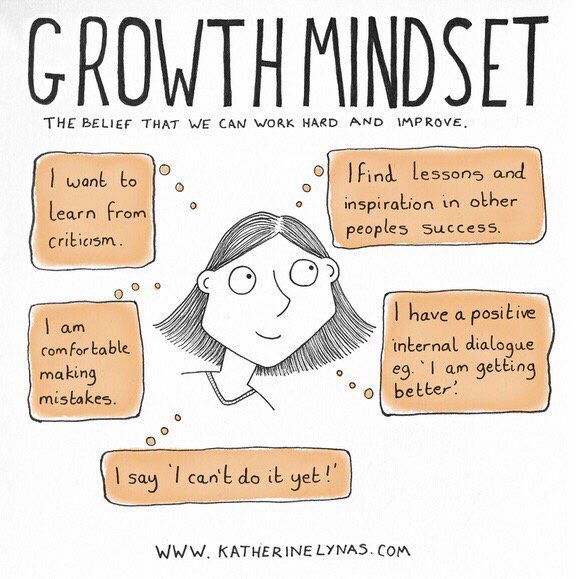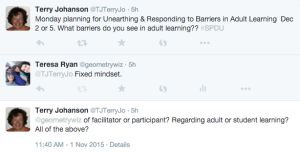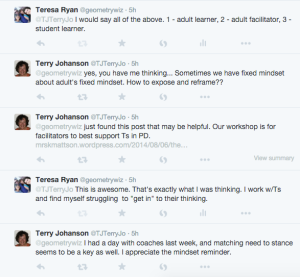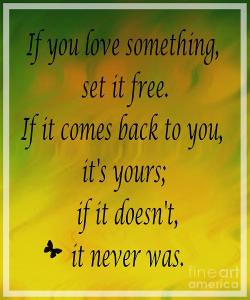We started each block by looking at this group of statements, discussing what it means to make mistakes in math classrooms, and how to not feel “dumb” when we do make mistakes. My attempt at working toward growth mindset. We also talked about how growth in mathematics almost always begins by trying things that may not work.
Today was my first day utilizing Google Classroom. Most of my students raised their hands indicating familiarity with the program when I asked. Everyone signed in, and began to work on the tasks I had placed in the stream. One was the syllabus, one was a group task asking them to work on a problem, then create a google slide explaining their problem and their solution in Geometry. In Algebra 2, I asked each group to take one of the rules of exponents, and create an example and explanation for how the rule worked. Both courses were asked to add a comment to two slides created by other groups. Thank you Alice Keeler for your book and the idea for this.
I was unable to get EquatIO added to the computers before my algebra classes, so they used the Add-on “Math Equations” until our technology department could get it added. Well, some tried, some couldn’t find it, and some just decided to type their equation into the slide using the text they would have typed into the program. The frustration levels were high, more with the technology than the math itself. Adding comments was also very frustrating for them. Many wanted to just quit, and I had to encourage them quite a bit to continue and try to find a way to do this.
We managed to get through it, and they had their first success at adding a slide to a google slides presentation, typing information onto a slide, commenting on another slide, and attempting some problems utilizing this resource they created for each other by contributing to this. Tomorrow I’m going to go back through the presentations and have each group present their slide and how their rule works by choosing a problem from our practice sheet and showing how the rule works for that problem. I’ll also have students discuss what information was helpful, and suggestions for how to improve the examples and explanations that were put on the slides. I’m hoping this will help them to review these rules, become more comfortable with what they did on slides, and become ready to do more work like this.
I made a mistake in putting this assignment into google classroom and somehow linked both of my Algebra 2 classes onto the same slides presentation. It became a long messy document, which I really didn’t want for our first attempt. I’ve tried to separate them so that it will be easier to do this work tomorrow, and had to admit that I’ve made the first mistake for the year. They did get a laugh at that.
All in all, I think the day went well. My students spent their first day really having to dig in and work, and I’ve set the example for perseverance when making mistakes. I’m hoping they are beginning to see the need for and benefit of having collaborative conversations, and I’m hoping that this practice will help them with end of course testing which occurs on computer. Previously they did nothing in class on computers, but then had to test with them. I’m sure that is an extra added stress for the testing that I’m hoping to eliminate this year.
I’m also hoping to learn how to do this better and create an interesting and beneficial course for my students that prepares them for any future work in which they may find themselves.
